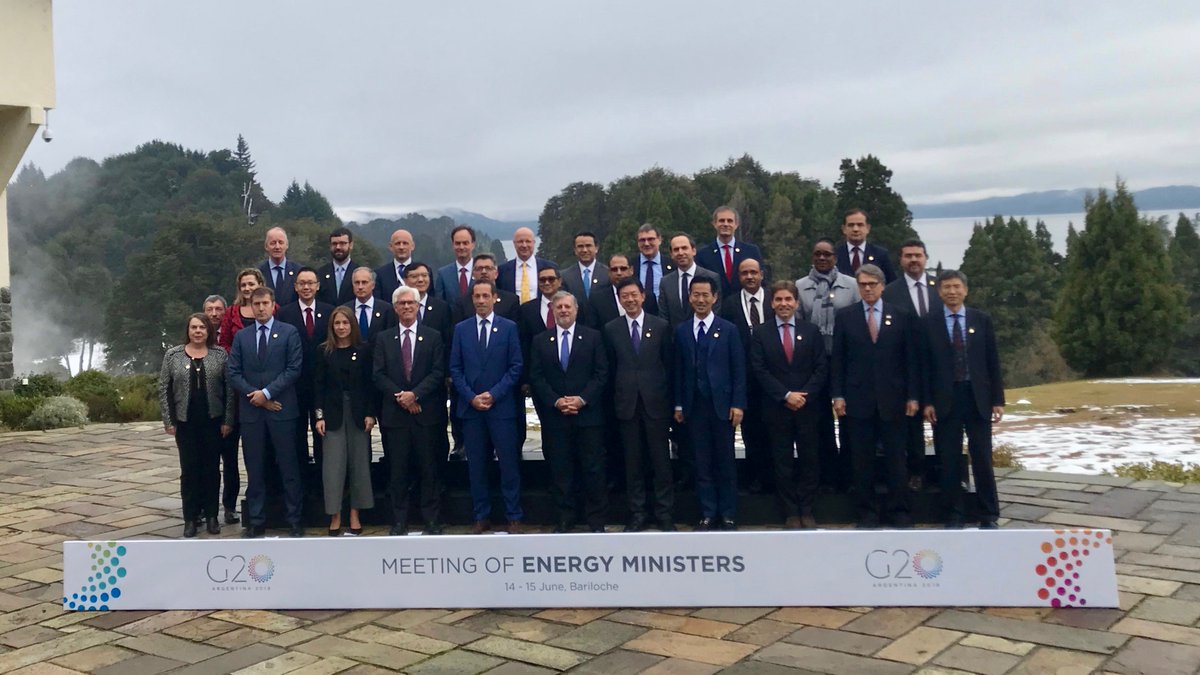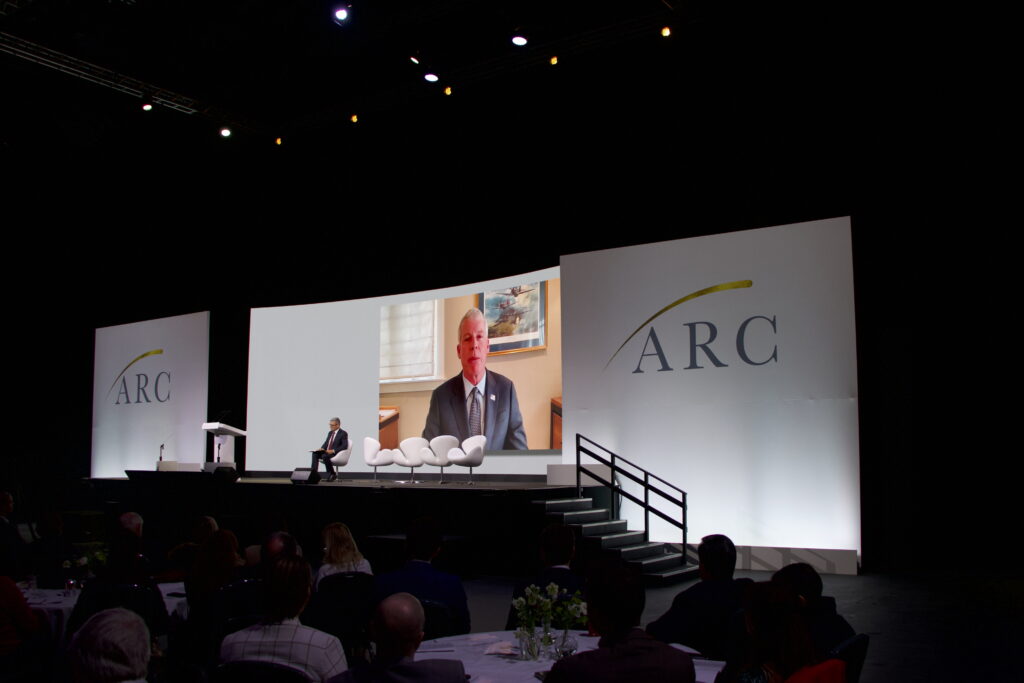By Joseph Siess
In June, U.S. Secretary of Energy Rick Perry traveled to Bariloche, Argentina, for a G20 Summit where he expressed his desire to help Argentina become more like Texas, his home state.
“The technology that has allowed for the shale gas revolution in America, we want to make available to Argentina,” Perry said.
At the summit, which was intended to focus on a transition to cleaner energy, Perry instead pledged the U.S. Department of Energy’s support in helping Argentina exploit its vast fossil fuel resources. Namely by connecting the nation with U.S. companies that know how to extract shale oil and gas via hydraulic fracturing (fracking).
But DOE isn’t the only part of the U.S. government facilitating fracking in Argentina. Under the Trump administration, the Departments of Interior and State — working closely with Pennsylvania State University — have been involved in multiple workshops focused on developing shale oil and gas in the South American nation.
Argentina has the second largest shale gas reserves in the world, but is still a net energy importer. Working together, our countries can partner to deliver abundant, affordable energy to the Americas and the world. #G20 #G20Argentina
— Rick Perry (@SecretaryPerry) June 15, 2018
The main target for fracking in Argentina is Vaca Muerta (translated as “Dead Cow”), one of the world’s largest unconventional oil and gas deposits, located in the Neuquén Basin. The oil and gas industry has been eyeing this formation in west-central Argentina since its existence was announced in 2011.
Argentine president Mauricio Macri wants to crack open Vaca Muerta to offset the mammoth amounts of natural gas the country currently imports. In the past five years, Argentina’s state oil company, YPF, has been involved with drilling more than 800 oil and gas wells there, including over a quarter using horizontal drilling and fracking, according to YPF’s Marcos Browne.
A recent statement issued by the government indicated that Argentina plans to double shale gas production in five years.
“We see a bright future for natural gas, and we see YPF soon becoming an international player in the natural gas arena,” predicted Browne.
YPF is collaborating in Vaca Muerta with multinational oil and gas companies such as Total, Shell, ExxonMobil, and Chevron, all of which have made sizeable investments in the megaproject. In just the last year, operators have committed $6 billion to Vaca Muerta, according to Amanda Kupchella, a research analyst at Wood Mackenzie.
US Government Sends Fracking Support to Argentina
At the G20 Summit, Perry said that the geology of Vaca Muerta “is quite similar to the formations of shale that we have in the United States,” and recounted opening up Texas to horizontal drilling and fracking while he was governor.
Perry said that he offered Juan Jose Aranguren, Argentina’s recently ousted energy minister, a “technological partnership” with the U.S. private sector. However, in addition to Perry’s support, the U.S. Department of State has been involved for some time in helping foreign governments develop their “oversight and governance capacity in the energy sector,” Vince Campos, a State Department spokesman, told DeSmog.
“The Department of State seeks to share U.S. best practices concerning the technical, regulatory, and fiscal underpinnings required to ensure safe and sustainable resource development in order to advance global and U.S. energy security,” Campos said.
“In some cases, this assistance can take the form of a workshop where experts from the Departments of State, Interior, Treasury, Commerce, and even the U.S. Coast Guard, share their experiences with host nation government counterparts on U.S. best practices,” Campos added.
One of these State Department-funded workshops, supported by the Department of Interior’s International Technical Assistance Program (DOI–ITAP), was slated for August 2 in San Patricio del Chañar, a town located in Neuquén not far from Vaca Muerta.
Gabriel Sosa, general secretary of the Neuquén Socialist Party and who was invited to the August 2 workshop, told Martín Alvarez, a local nonprofit researcher, that it was canceled due to security concerns.
The State Department confirmed that the August 2 workshop did not take place, but local media and municipal officials reported that other workshops were held around the same time, one in a town called Centenario on July 31, and another on August 1 in Rincón de los Sauces.
Penn State Provides Technical Assistance to Argentine Officials
In addition to U.S. federal support, Pennsylvania State University, located in the heart of the Marcellus Shale, has been a key player in offering technical assistance to Argentine officials. Tom Murphy, director of the Marcellus Center for Outreach and Research (MCOR), Penn State’s shale energy education and research initiative, presented at the workshops in Centenario and Rincón de los Sauces, and was scheduled to present at the canceled workshop in San Patricio del Chañar.
Murphy appeared alongside the Bureau of Land Management’s (BLM) Olivia Sierra, the program director for DOI–ITAP, at these State Department-funded workshops in Argentina.
An MCOR document from April 2017 stated that, “As one of several global initiatives, MCOR has entered into a funded cooperative agreement with the U.S. Dept. of State to provide in-country and distant (digital) education to government officials in Argentina, related to the development of Vaca Muerta shale resource in the western region of the country.”
The document also explains that the energy program directly benefits the state of Pennsylvania, “as many companies from the Commonwealth are deploying technology, staff and experience from Marcellus to the Vaca Muerta.”
Murphy said that the canceled workshop, titled, “Sustainable Development of Non-conventional Hydrocarbons,” as well as the other two workshops, were “devised by the Department of State.”
“We were there because we were requested because of our experience and expertise as subject matter experts, along with Groundwater Protection [Council] and BLM,” Murphy told DeSmog.
Penn State, Murphy said, was requested by the federal government in Argentina as well as provincial and municipal governments in Neuquén to participate in the workshops to share their experience and expertise in shale development.
“Our task is not to promote the developments,” Murphy said. “Our task is to explain, because they are already developing their resource.”
“They were trying to learn the positives and the negatives and how they can mitigate any potential downsides that might occur,” Murphy added.
Local Resistance to US Fracking Partnership
Sosa, described the State Department workshops as “constant blows from the United States against Argentina’s sovereignty” on a news segment broadcasted by RTNinforma.
According to photos of documents for the August 2 workshop released on Twitter, the purpose of the canceled State Department event was to “explore in greater depth the problems and implications associated with non-conventional gas development, as well as the paradigm changes in energy evolution that both nations [Argentina and the U.S.] are experiencing.”
Invasión Fracking: El Departamento de Estado de EEUU realiza talleres en un municipio de Vaca Muerta. #Neuquén #VacaMuerta vía @EduardoCorrea49 pic.twitter.com/61nnL0Rzso
— Martín Álvarez (@mgcipo) July 30, 2018
According to Campos, “Department of State technical engagements are designed to help countries that already have expressed interest in developing their domestic resources understand the current state-of-play of the oil and gas sector inside the United States, particularly as it relates to mitigating environmental risks and the wide range of potential above-ground impacts.”
Alvarez, the Argentine nonprofit researcher who tweeted the photos of the documents, said they came from a source who prefers to remain anonymous due to job security concerns. The photos were also shared on the Neuquén Socialist Party’s Facebook page, with a call to action to stop the August 2 event from taking place.
“We believe that we need to discuss state policy with the government of our country, and our province, and we are willing to do so,” Sosa added during the televised interview.
“Decisions on energy policy and priorities remain with the host nations,” Campos said. “Argentina remains a strong partner of the United States, and the Department of State supports Argentina’s desire to achieve improved energy security.”
Main image: U.S. Energy Secretary Rick Perry and other energy ministers from around the world in Bariloche, Argentina during the G20 Summit. Credit: U.S. Department of Energy, public domain
Subscribe to our newsletter
Stay up to date with DeSmog news and alerts







